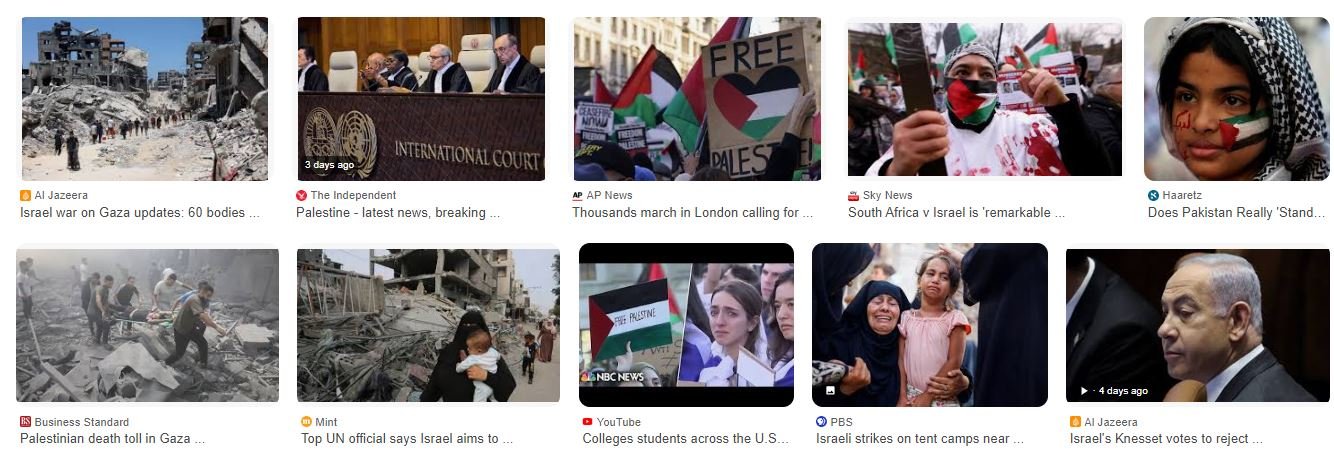Pakistan Calls Israel’s Netanyahu a ‘Terrorist’: A New Diplomatic Rift
Introduction
In a bold and unprecedented move, Pakistan has labelled Israeli Prime Minister Benjamin Netanyahu a “terrorist,” igniting a fierce diplomatic controversy. This declaration came during a high-level news conference in Islamabad, where Prime Minister Shehbaz Sharif and other prominent Pakistani leaders openly criticized Netanyahu’s actions. The Pakistani government accused Netanyahu of committing war crimes against the Palestinian people, a stance that has reverberated across the international community. This article delves into the context and implications of this accusation, exploring the intricate geopolitical tensions underlying this bold statement.
The Accusation: Context and Background
News Conference in Islamabad
The controversial statement was made at a high-profile news conference in Islamabad, where Pakistan’s Prime Minister Shehbaz Sharif, alongside other senior officials, addressed the media. The meeting was organized in response to the ongoing violence in the Gaza Strip, where Israeli military actions have resulted in significant Palestinian casualties. Prime Minister Sharif’s strong words were aimed at drawing international attention to what he described as “atrocities” committed by the Israeli government under Netanyahu’s leadership.
Historical Context of Pakistan-Israel Relations
Pakistan has never officially recognized the state of Israel, a stance rooted in its unwavering support for the Palestinian cause. Over the years, Pakistan has consistently condemned Israeli actions in Palestinian territories, but the recent escalation in rhetoric marks a significant intensification of its stance. The accusation of terrorism against Netanyahu represents a new level of diplomatic confrontation between the two countries.
Accusations of War Crimes
Prime Minister Shehbaz Sharif’s accusation that Netanyahu has committed war crimes is based on numerous reports from international human rights organizations. These reports document alleged violations of international law by the Israeli military, including indiscriminate bombing, targeting civilian infrastructure, and the use of excessive force against protesters. By labelling Netanyahu a terrorist, Pakistan aims to hold him personally accountable for these actions and to galvanize the international community to take a stronger stand against Israel’s policies in the Palestinian territories.
Reactions and Implications
International Community’s Response
The international community’s response to Pakistan’s accusation has been mixed. While some countries and organizations have echoed Pakistan’s concerns about Israeli actions, others have criticized Prime Minister Sharif’s inflammatory language. The United States, a key ally of Israel, has predictably condemned Pakistan’s statement, calling for restraint and a more measured approach to the conflict.
The United States Position
The U.S. State Department, in a swift response, reiterated its support for Israel and condemned any form of incitement or inflammatory rhetoric that could exacerbate tensions. The U.S. emphasized the need for direct negotiations between Israel and the Palestinian Authority to reach a lasting peace agreement. This stance underscores the deep-rooted alliance between the United States and Israel, highlighting the challenges Pakistan faces in garnering widespread international support for its position.
Palestinian Authority’s Reaction
The Palestinian Authority (PA) welcomed Pakistan’s statement, viewing it as a significant expression of solidarity. The PA has long sought greater international recognition and condemnation of Israeli actions, and Pakistan’s strong words against Netanyahu provide a diplomatic boost to their cause. However, the PA also understands the delicate balance of international diplomacy and the potential repercussions of such strong language.
Regional Reactions
The reaction within the Middle East has been varied. Countries like the United Arab Emirates, which recently normalized relations with Israel, have maintained a cautious stance. The UAE’s normalization of ties with Israel was a significant diplomatic breakthrough, and they are wary of actions that could undermine this progress. On the other hand, countries with more traditional stances against Israel, such as Iran and Turkey, have expressed support for Pakistan’s position.
Political Implications for Pakistan
Domestic Politics
Domestically, Prime Minister Shehbaz Sharif’s statement has received mixed reactions. The Tehreek-e-Labbaik Pakistan (TLP) supporters, a hardline Islamist political party, have praised the Prime Minister for his bold stance. The TLP has been vocal in its support for the Palestinian cause and has organized numerous protests against Israeli actions. However, more moderate political factions have expressed concerns about the potential diplomatic fallout and the impact on Pakistan’s international standing.
Diplomatic Relations
The accusation against Netanyahu has strained Pakistan’s diplomatic relations with countries that support Israel. While Pakistan’s stance resonates with many Muslim-majority countries, it risks alienating influential global powers and jeopardizing potential economic and military aid. Navigating these diplomatic waters will require Prime Minister Sharif and his administration to balance them carefully.
Netanyahu’s Response
Israeli Prime Minister’s Defense
Israeli Prime Minister Benjamin Netanyahu has vehemently denied the accusations of terrorism and war crimes. In his response, Netanyahu emphasized Israel’s right to self-defence against militant groups in the Gaza Strip, such as Hamas. He accused Pakistan of spreading misinformation and inciting hatred against Israel. Netanyahu also pointed to Israel’s efforts to minimize civilian casualties despite the complexities of urban warfare in Gaza.
Impact on Israeli Politics
The accusation from Pakistan has also had repercussions within Israeli politics. Netanyahu’s supporters have rallied behind him, viewing the accusations as part of a broader campaign to delegitimize Israel. Conversely, his critics have used the opportunity to highlight the ongoing humanitarian crisis in Gaza and to call for a reassessment of Israeli policies.
Broader Geopolitical Implications
Middle East Dynamics
Pakistan’s bold statement has added another layer of complexity to the already volatile Middle East dynamics. The accusation against Netanyahu has the potential to influence the broader Arab-Israeli conflict, particularly in how other countries in the region position themselves. It could also impact ongoing efforts to normalize relations between Israel and other Arab nations, as seen with the UAE and Bahrain.
International Law and Accountability
The accusation of war crimes and terrorism against a sitting head of state raises significant questions about international law and accountability. While the International Criminal Court (ICC) has opened investigations into alleged war crimes in the Palestinian territories, bringing a sitting head of state to justice remains a formidable challenge. Pakistan’s statement could reinvigorate discussions about the role of international institutions in holding leaders accountable for their actions.
Sources:
Final Thoughts and Questions
Pakistan’s bold accusation against Israeli Prime Minister Benjamin Netanyahu has intensified the diplomatic rift between the two countries and brought renewed attention to the plight of the Palestinian people. While the international community remains divided on the issue, Pakistan’s stance highlights the enduring complexities of the Israeli-Palestinian conflict. As the situation continues to evolve, several questions remain:
- Will Pakistan’s strong rhetoric lead to tangible changes in international policy towards Israel?
- How will this accusation impact Pakistan’s relations with key global powers, particularly the United States?
- Can the international community find a balanced approach to addressing the humanitarian crisis in Gaza while ensuring accountability for alleged war crimes?
- What role will regional powers in the Middle East play in shaping the future of the Israeli-Palestinian conflict?
These questions underscore the issue’s multifaceted nature and the ongoing struggle for peace and justice in one of the world’s most enduring conflicts.
Harnessing the Power of Generative AI Overview for Effective Project Management










